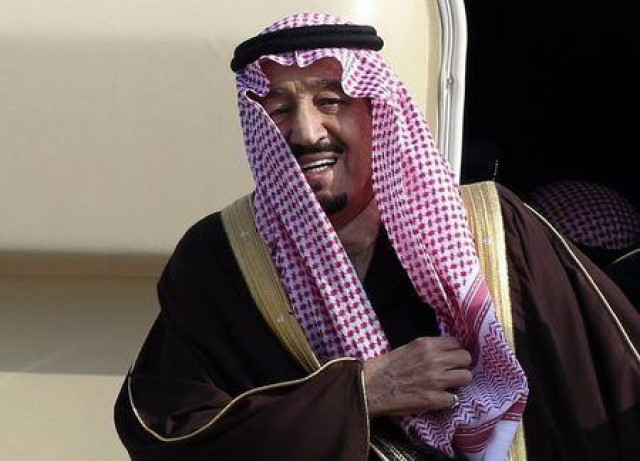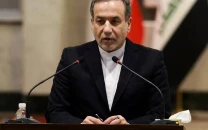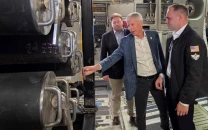Saudi king hopes final Iran deal will boost security
A framework agreement aimed at curbing Iran's nuclear drive was clinched Thursday after marathon talks in Switzerland

A file photo of Salman bin Abdul Aziz al-Saud. PHOTO: REUTERS
In a phone call with Obama on Thursday, Salman "expressed his hope that a final binding deal would be reached to reinforce the stability and security of the region and the world," the SPA news agency said.
A framework agreement aimed at curbing Iran's nuclear drive was clinched Thursday after marathon talks in Switzerland.
It marked a major breakthrough in a 12-year standoff between Iran and the West, which has long feared Tehran wants to build an atomic bomb.
Read: Iran, global powers agree 'key parameters' of nuclear deal
Iran and Saudi Arabia, the foremost Shia and Sunni Muslim powers in the Middle East, have had troubled relations in recent years after taking different sides in the Syrian civil war.
Relations have been further strained by the conflict raging in Yemen, where a Saudi-led coalition has waged more than a week of air strikes against Iran-backed Shiite rebels.
Obama said Thursday he had invited Gulf leaders to a spring summit at Camp David to discuss security cooperation in the region.
Saudi Arabia fears that if too much of Iran's nuclear programme is left intact it will still have the ability to obtain an atomic bomb, and there are concerns that Riyadh could seek its own nuclear capability.
The kingdom's former intelligence chief, Prince Turki al Faisal, warned last month that "whatever comes out of these talks, we will want the same," specifically uranium enrichment capability.
If an agreement is seen as too weak, Saudi Arabia will try to find a way to counter-balance it, a Western diplomat said.
"They will certainly seek a way of balancing what would be seen as an advantage on the Iranian side," said the diplomat, asking for anonymity.
Saudi Arabia would first ask for "security assurances" from the United States and other major powers who negotiated with Iran.
If that did not work, the kingdom could seek its own deal with Pakistan, a longtime ally of Riyadh, the diplomat said.
Another Gulf nation, Oman, on Friday welcomed the "historic" agreement reached in Lausanne.
A statement from the foreign ministry in Muscat said that a final deal, to be reached by June 30, should open "a new era for more regional and international security and stability".
Unlike other Gulf monarchies, Oman enjoys good relations with Iran, which enabled it to play a key mediating role between the West and Tehran over the nuclear programme.


















COMMENTS
Comments are moderated and generally will be posted if they are on-topic and not abusive.
For more information, please see our Comments FAQ